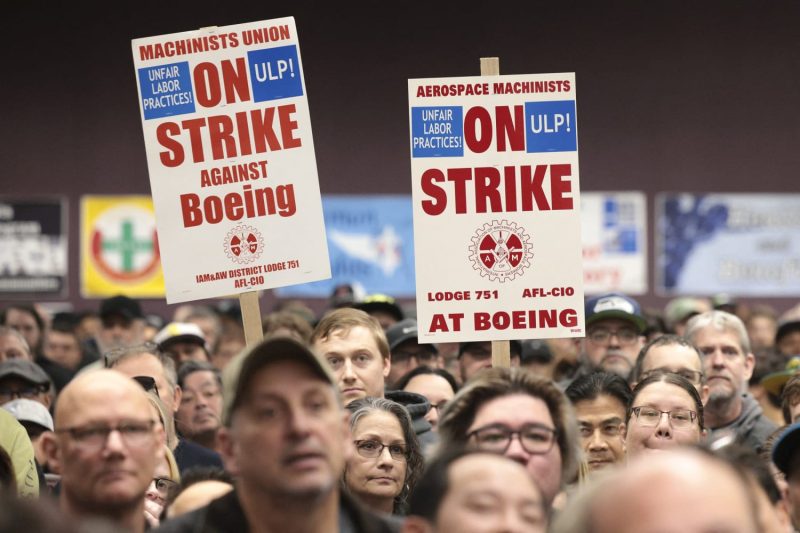Boeing Machinists Reject New Labor Contract, Extending Strike
The recent rejection of a proposed labor contract by Boeing machinists has inevitably led to an extension of the strike, further deepening the rift between the aerospace giant and its workforce. The contentious negotiations have highlighted the intricate dynamics at play between the management and the union, with both sides seemingly at an impasse.
One of the key sticking points in the rejected contract was the issue of job security. Machinists have expressed concerns about the potential outsourcing of jobs and the impact this could have on their livelihoods. In an industry as competitive and rapidly evolving as aerospace, job security is a paramount concern for workers who dedicate their skills and labor to the company.
Another critical issue that derailed the contract negotiations was the proposal regarding wages and benefits. Machinists are seeking fair compensation for their work, especially considering the demanding nature of their jobs and the contribution they make to Boeing’s success. The rejection of the contract signifies a disconnect between the company’s perceived value of its workforce and the expectations of the employees.
Moreover, the rejection of the labor contract reflects broader tensions within the aerospace industry. With increasing global competition and technological advancements reshaping the landscape, companies like Boeing are under pressure to innovate and cut costs. However, this often comes at the expense of the workers who form the backbone of the industry.
The extended strike resulting from the rejected contract is likely to have far-reaching consequences for both Boeing and its employees. The financial impact of prolonged disruptions in production could be significant for the company, while workers face the uncertainty of being out of work for an indefinite period. This deadlock underscores the need for constructive dialogue and compromise on both sides to reach a mutually beneficial agreement.
As the strike continues, both Boeing and the machinists union are faced with the challenge of finding common ground and resolving the issues that have led to the rejection of the labor contract. The outcome of this struggle will not only shape the future relationship between the company and its workforce but also set a precedent for labor relations in the broader aerospace industry. Only through meaningful engagement and a genuine willingness to address the concerns of all stakeholders can a resolution be achieved, paving the way for a more sustainable and harmonious working environment.



























